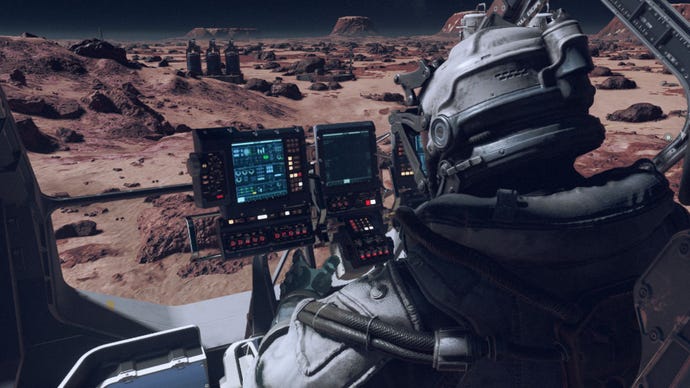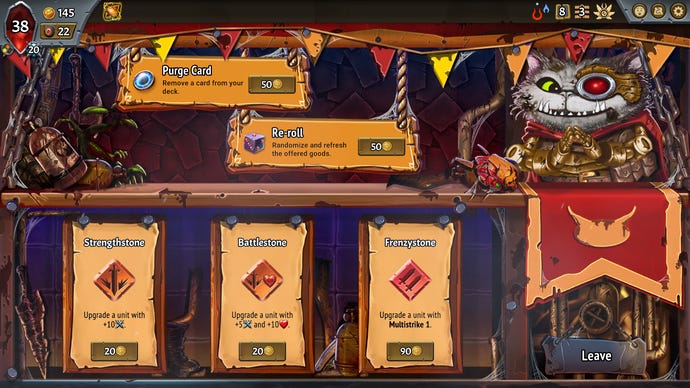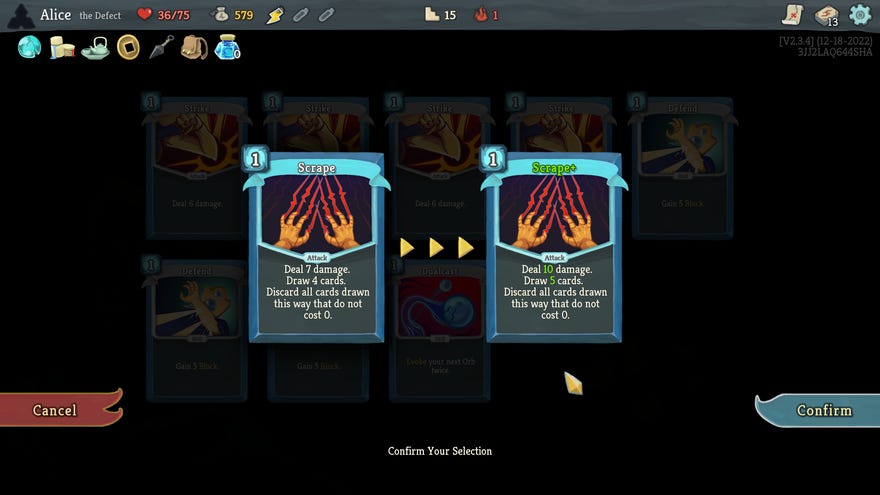What's better: Fast travel, or upgrading cards?
Vote now!
Last time, you decided that interrupt attacks are better than a lore codex. Sanity prevailed, and I thank you. Though I realise I am now writing a lore codex entry about a great victory in the year 2023, so sorry about that. This week, I ask you to choose between upgraded movement or upgraded cardboard. What's better: Fast travel, or upgrading cards?
Fast travel
You've travelled to the far end of the open world, through unknown valleys and deep forests, discovering villages and cities and temples and dungeons and treasures along the way, and finally you are done. Your task is complete. You've found the doodad. And. Oh. Now you need to take it back to the starting town. No worries! Open up the map and fast-travel back.

No hour spent running back. No repeat of places you've already seen and dungeons you've already rinsed. Just hand in the doodad and off you go. Fast travel: a too-rare case of video games respecting your time.
While fast travel is wildly convenient, I fear it can hollow games. A game which expects you to use fast travel is a game where it's less important to make an interesting experience out of simply travelling the world. It's a game that might focus on strong first impressions but have little thought for second or third visits. A game which sees the world as locations to complete tasks. This needn't be the case, of course, but I'd swear I've felt that influence in too many open-world games.
On the flipside, maybe it's fine for games to be that. Maybe fast travel means a game can appear to be a living world but be a Disneyland, thrilling and delighting then sending you home before the novelty wears thin. Not every game need be a place I want to roam endlessly. Most games are theme parks of some form, and fast travel lets an open-world game lean into that. And I understand lots of people do just want to complete checklists of menial tasks and chores around a big place (these people are monsters).
Upgrading cards
I always enjoy when digital card games do things which would be impossible, or at least fiddly, in a physical card game. One of my favourite manifestations of this is upgrading cards, which I suppose is technically possible with cardboard but would be a faff with tokens or markers or Biro or... no thank you. In video games, with but a few clicks of the mouse (my dear boy), I've made my card better.
The ever-elegant deckbuilding dungeon crawler Slay The Spire simply has an upgraded form of each card, and you can bump your cards up to their better versions in a variety of ways. The most common is by smithing instead of resting at a campfire, though items, abilities, and encounters can gooden you up too. It's very satisfying to have a honed deck with all upgraded cards.

The Spire-inspired Monster Train hinged upon upgrades. It made upgrading freeform, taking bigger numbers and extra keywords onto cards as you pleased. This means not only is carefully building your deck important, it's vital to figure out strong builds for individual units. Layers of planning, optimising, and fiendish plans.
Inscryption turns upgrading bloody in a delightful way. Sacrifice cards on altars to boost other cards, and try not to feel too bad if you're killing a sentient card which knows it's trapped in a card. Or upgrade a card by basking in the warmth of a campfire, risking losing it to the people in the shadows if you push your luck with too many upgrades at once. It's clever. It's horrible.
I like upgrading cards more than many other types of unit upgrades partially because it feels a little wrong. You couldn't do this so easily with cardboard. But here I am, scrawling new, bigger numbers on top. And I'm winning while doing it. Victory through defacement.
But which is better?
Fast travel is undeniably handy but I fear it's had an insidious effect on games. Upgrading cards wins it for me. But what do you think?
Pick your winner, vote in the poll below, and make your case in the comments to convince others. We'll reconvene next week to see which thing stands triumphant—and continue the great contest.

